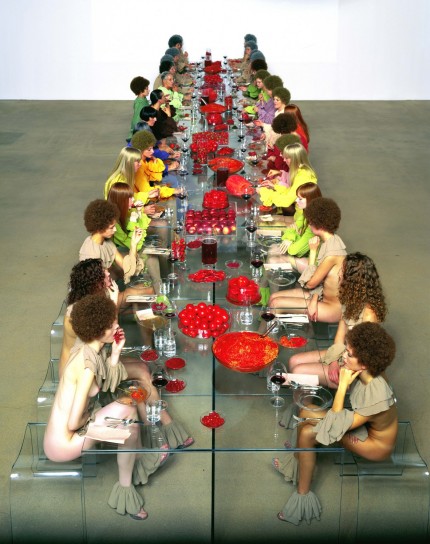Culinary arts
What our food says about us
In Al Dente: History of Food in Italy, Fabio Parasecoli, shows how food can be a window on society and political policy.

Al dente, he says. And nothing else is given to the gourmand. Al dente pasta is a culinary fundamental, a privilege once relegated to the South, then fortunately also exported to the North. And not just there. To America, and of course to New York.
Fabio Parasecoli, a former journalist for the food magazine Gambero Rosso, lives in the Big Apple, where he is associate professor and director of Food Studies at The New School, a university in the city. Al Dente: History of food in Italy (published by Bus, €24) is his latest literary work. After his series on the various national cuisines, Al Dente has provided an opportunity to reorganize the ideas and the material that he already had on the topic.
“I took the opportunity,” he said, “to get updated on the research already published and go back to read for myself the texts of others. Starting from the Greek era to contemporary texts. I was interested in dwelling on those socio-political processes that led to the recognition of ingredients, dishes and cooking practices as ‘Italian.’ Italy is a fairly recent political, economic and cultural entity.”
In the U.S., the book has been adopted in several universities. But when the publishing house Libreria Editrice Goriziana became interested in a translation, the author was surprised: “In the book, there is information that would seem obvious. We believe we know all about our food, especially now with the massive presence of food and gastronomy in the media. We accept false myths and do not know the origins and the reasons for what and how we eat.”
In Al Dente, Parasecoli connects landscapes with agricultural techniques and social histories of rural communities. Under his lens, he also scrutinizes the urban and craft environments, as well as the contributions of professional chefs and the stewards of the past. Also, literature and culture known as “high” and more recently the media, find their roles, especially in the film and printing industry. This is the approach that is called food studies in the United States, a field of multidisciplinary research across the sciences, agriculture, anthropology, sociology, gender studies (very controversial in Italy), communication, politics, environment, health, etc.
“Living in New York allowed me to keep a distance from the topic. Although the emotional involvement with the food and its roots is always present,” Parasecoli said, “sometimes, the passion for Italian cuisine takes on mythical and overly romantic tones. Some foreigners think of Italy as a place where people are in touch with the senses and the passions, there are less stringent rules and the pace of life is slower. Food plays a central role in these fantasies. These images are multiplied and amplified by the media and the cinema. Just think of Eat, Pray, Love. I believe this responds more to deficiencies or desires in foreign cultures than to the actual Italian culture. Those involved in marketing ride this wave well and help to reinforce the message.
“From one point of view, it may be harmful because it diverts attention from the quality, the efforts to improve the supply chains, etc. From the political point of view, however, the promotion of Italian food abroad is left to individual entrepreneurs, manufacturers, importers, with little common effort in terms of image.”
Yet another chance thrown to the wind. But not for Parasecoli, who has found in America a way to work on food experimenting intelligently and supported by institutions. “The academic world is more flexible and ready to absorb change and social phenomena, creating new programs and research,” he said.
“Perhaps because many Americans have problems with their food system, food is also subject to social and political criticism,” Parasecoli said. “From health to organic farming, from the use of hormones and antibiotics in meat to the spread of farmers’ markets in urban neighborhoods and rural areas with low-income population, from local networks to sustainability, from the impact of innovation and technology to conservation of traditions.”
An interesting and necessary perspective about a topic that concerns us. And to find answers, as with all things, we’re looking backward into our roots.
Originally published at http://ilmanifesto.info/a-tavola-per-rovesciare-il-potere/ on 2015-12-05
